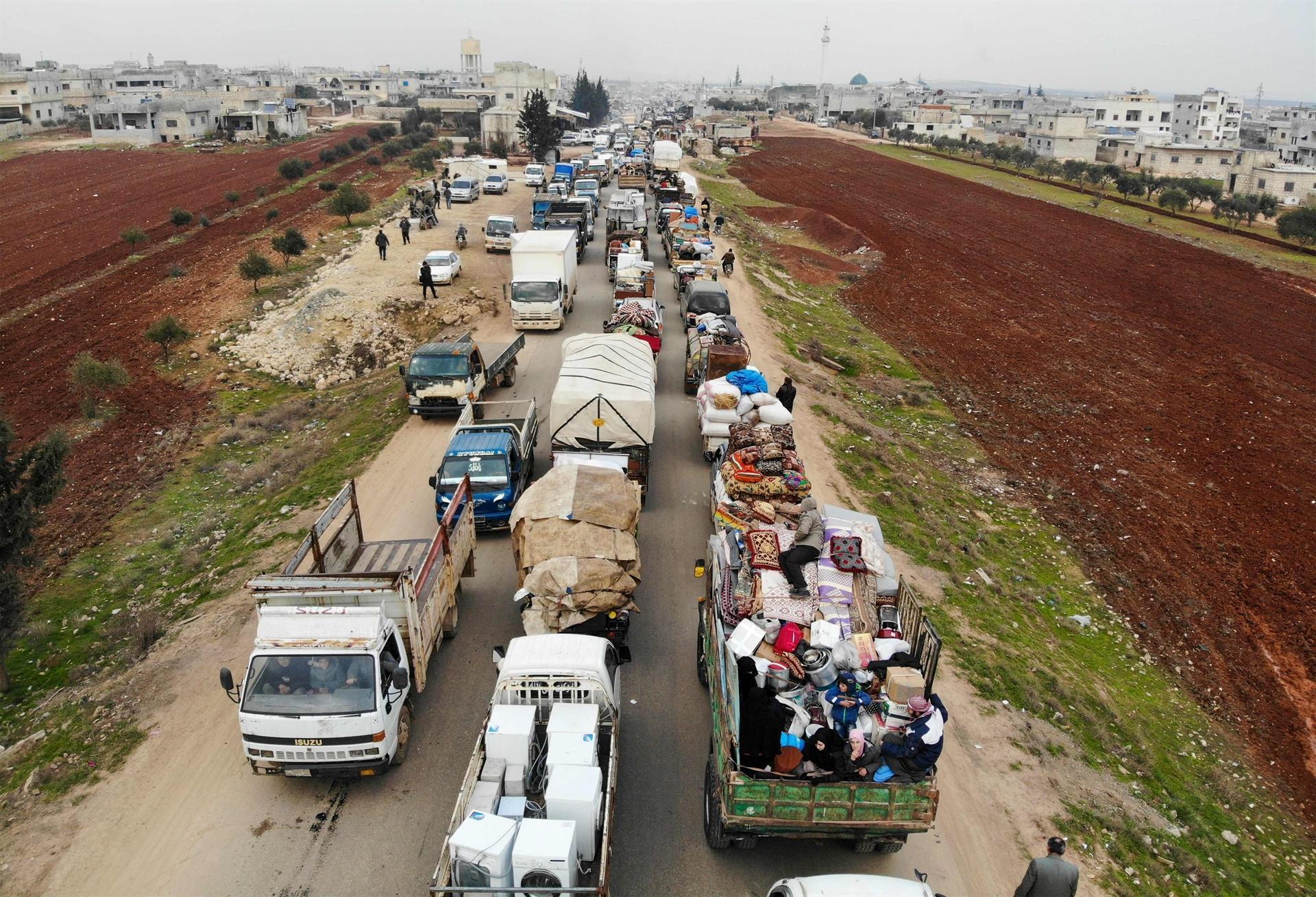
An aerial photo shows displaced Syrians driving through Hazano in the northern countryside of Idlib, after fleeing on Jan. 28, 2020 its southern countryside towards areas further north near the border with Turkey, as a result of an ongoing offensive by regime forces on Syria's rebel-held northwestern region. (AFP Photo)
Recent attacks in Idlib province of Syria and the following refugee influx to the Turkish border are a national security issue for Turkey, main opposition Republican People’s Party (CHP) spokesperson Faik Öztrak said on Jan. 29.
“The [ruling Justice and Development Party] AKP government needs to take urgent steps regarding Idlib and start following a strategy that will eliminate the threats to our country. International organizations should be called. Idlib has become a matter of national security for Turkey. Uniaxial foreign policy should be abandoned as soon as possible,” Öztrak said at a press conference.
Idlib is the last region under the control of radical organizations in Syria, Öztrak stated, noting that Turkey has important obligations and the province over the deals of Astana and Sochi.
Turkey is committed to collect weapons from jihadist organizations in Idlib, draw them towards the north and ensure the opening of the highways, the CHP official said. However, Ankara could not fulfill any of these obligations, he said. On these grounds, now the Syrian regime forces are carrying out attacks in Idlib, with the support of Russia, Öztrak said.
Thousands of people rush to the border of Turkey and those include almost 50,000 “radical terrorists,” according to the statements of locals there, Öztrak stated.
“This new migration wave is a bigger threat to our country than before. It is essential for the AKP government to take urgent steps regarding Idlib and follow a policy that will eliminate the threats that may be derived from Idlib against our country. For the controlled release of Idlib, all relevant international organizations and countries, especially the UN, should be called,” he said.